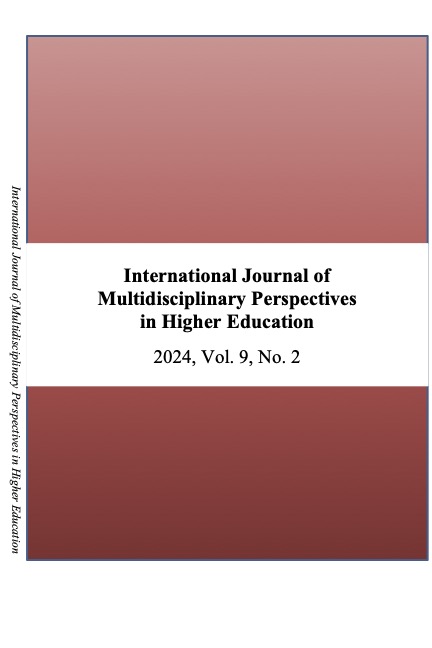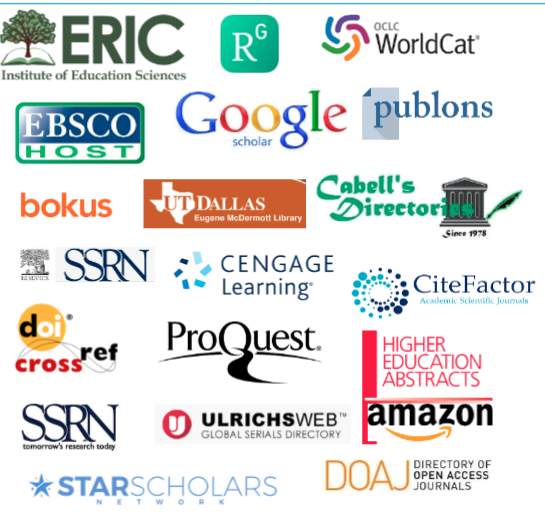Exploring the value of culturally responsive pedagogy in English for Specific Purposes teaching: a case study in a Greek context
DOI:
https://doi.org/10.32674/bjjcsv73Keywords:
Culturally responsive pedagogy (CRP);, English for Specific Purposes (ESP);, Greek students, Higher EducationAbstract
This article examines the implementation of culturally responsive pedagogy (CRP) in English for Specific Purposes (ESP) teaching, recognizing ESP as a learner-centric approach tailored to individual needs. Despite this acknowledgment, the optimal methods for achieving learner goals remain elusive. Academics stress the need for a personalized approach, emphasizing the teacher's awareness and ability to select or create suitable methodologies. Within the context of a Greek classroom influenced by Katsara's (2021) facilitator-oriented model, the study utilized the Read, Ask, and Paraphrase (RAP) strategy by Schumaker et al. (1984) for a seminar on global citizenship principles in business. Evaluation through reflection journals of 39 Greek business students revealed their high satisfaction, highlighting the impact of power dynamics on instructional delivery. Students appreciated the topic's relevance, the facilitative nature of teaching materials, and specific academic writing skills. Suggestions for improvement included more guidelines and exploration of specialized business topics, underscoring the teacher's role as a facilitator. The paper proposes preliminary pedagogical implications for a foreign language policy aligned with the approach used in the study
References
Asonitou, S., Mandilas, A., Chytis, E., & Latsou, D. (2018) A Greek Evaluation of the Course Experience Questionnaire: Students’ Conceptions of the Teaching Quality of Higher Education Accounting Studies. International Journal of Business & Economic Sciences Applied Research, 11(2), 51-62
Basturkmen, H. (2006). Ideas and Options in English for Specific Purposes. Lawrence Erlbaum Associates Inc.
Belcher, D. (2009). What ESP is and can be: An introduction. In D. Belcher (Ed.), English for Specific Purposes in Theory and Practice (pp. 1- 20). University of Michigan Press
Brailas, A., Avani, S., Gkini, C., Deilogkou, M., Koskinas, K., & Alexias, G. (2017). Experiential learning in action: A collaborative inquiry. The Qualitative Report, 22(1), 271-288. https://doi.org/10.46743/ 2160-3715/2017.2551
Deardorff, D. K., & Hunter, W. (2006). Educating global-ready graduates. International Educator, 15(3), 72-83.
Dudley-Evans T, St John MJ (1998). Developments in English for specific purposes. Cambridge University Press
Gatehouse K (2001). Key issues in English for specific purposes (ESP)curriculum development. Internet TESL Journal, 7(10), 126-135
Gay, G. (2000). Culturally responsive teaching: Theory, research, and practice. Teachers College Press.
Harding, K. (2007). English for specific purposes: Resource Books for Teachers. Oxford University Press
Hofstede, G. (1986). Cultural differences in teaching and learning. International Journal of Intercultural Relations, 10(3), 301-320 https://doi.org/10.1016/0147-1767(86)90015-5
Hofstede, G. H. 2001. Culture’s consequences: Comparing values, behaviors, institutions, and organizations across nations. Sage Publications.
Hsieh, H.-F., & Shannon, S. E. (2005). Three approaches to qualitative content analysis. Qualitative Health Research, 15(9), 1277-1288. http://doi: 10.1177/1049732305276687
Hutchinson, T. & A. Waters (1987). English for specific purposes: A learning-centred approach. Cambridge University Press
Kantaridou, Z., Machili, I., & Papadopoulou, I. (2021). Profiling the motivational characteristics of Greek university students. System, 103, 102638. https://doi.org/10.1016/j.system.2021.102638
Katsara, O. (2008). Aspects of motivation within the context of an ESP course. ESP World Journal, 3(19), Vol.7.
Katsara, O. (2010). The development of a web-site for preparing Greek students for an ESP course. In E. Panourgia, T. Dalpanagioti, F. Perdiki, & M. Makrina (Eds.), ESP/EAP Innovations in Tertiary Settings: Proposals and Implementations (pp.188-198). Kavala Institute of Technology Press
Katsara. O. (2014). The need to investigate the Greek cultural perspective within the teaching practice of an ESAP class. Asian ESP Journal, 10(2), 88-113
Katsara, O. (2018) The first part of an investigation of Greek students’ use of study skills within the learning context of an English for Specific Academic Purposes Course. In West East Institute (Eds.). Education & Humanities and Social Sciences (pp.131-156), University of Vienna Press
Katsara, O. (2020). How Adult are Greek University Students in an English- for Specific-Academic-Purposes Class? A Case Study. In Tennefeld, T. (Ed.) with the collaboration of East, M. and Kresta, R. The Magic of Language Productivity in Linguistics and Language Teaching (pp. 175-197). htw saar Press
Katsara, O. (2021) Reaffirming the teacher role within the context of culturallyresponsive pedagogy: A case study and relevant issues, International Arab Journal of English for SpecificPurposes, 4(1), 66-84
Kavaliauskiene, G., Kaminskiene, L., & Anusiene, L. (2007). Reflective practice: assessment of assignments in English for Specific Purposes. Ibérica: Revista de la Asociación Europea de Lenguas para Fines Específicos (AELFE), 14, 149-166.
Koutrouba, K., Kariotaki, M., & Christopoulos, I. (2012). Secondary education students’ preferences regarding their participation in group work: The case of Greece. Improving Schools, 15(3), 245– 259 https://doi.org/10.1177/136548021245886
Luo, J., & Garner, M. (2017). The Challenges and Opportunities for English Teachers in Teaching ESP in China. Journal of Language Teaching and Research, 8(1), 81-86. http://dx.doi.org/10.1750/jltr.0801.10
Manataki, T. (2020). Students' views on learning in Greek universities: Is it instrumental or transformative? (Απόψεις φοιτητών σχετικά με τη μάθηση στα Ελληνικά πανεπιστήμια: Είναι εργαλειακή ή μετασχηματίζουσα) [Master’s thesis. Hellenic Open University].
Patton, M. Q. (1990). Qualitative evaluation and research methods (2nd ed.). Sage.
Richards, J. C., & Schmidt, W.R. (2010). Longman Dictionary of Language Teaching and Applied Linguistics (4th ed). Routledge.
Robinson, F.P. (1946). Effective study. Harper & Brothers Pub
Robinson, P. 1991 ESP Today: A Practitioner’s Guide. Prentice Hall International
Schumaker, J. B., Denton, P. H., & Deshler, D. D. (1984). The paraphrasing strategy University of Kansas Center for Research on Learning Press
Sifakis, N. (2005). English for Specific and Academic Purposes – a trendy demand? Orientations in ESP/EAP research, with a critical perspective on the Greek situation. In F. Perdiki, E. Panourgia, E. Vergidou & K. Samara (Eds.), Teaching foreign languages for specific purposes: a trend or a demand? (pp 17-30). TEI of Kavala Institute of Technology Press
Sifakis, N. (2009). LSP practitioner empowerment: a critical understanding of the issues involved. In K. Katsampoxaki-Hodgetts (Ed.), Options and Practices of LSP Practitioners (pp 465-482). University of Crete Press
Strevens, P. (1988). ESP after twenty years: A re-appraisal. In M. Tickoo (Ed.), ESP: State of the art (pp. l1-13). SEAMEO Regional Language Centre Press
UN (2021). Transforming our world: The 2030 Agenda for Sustainable Development. https://sdgs.un.org/2030agenda






